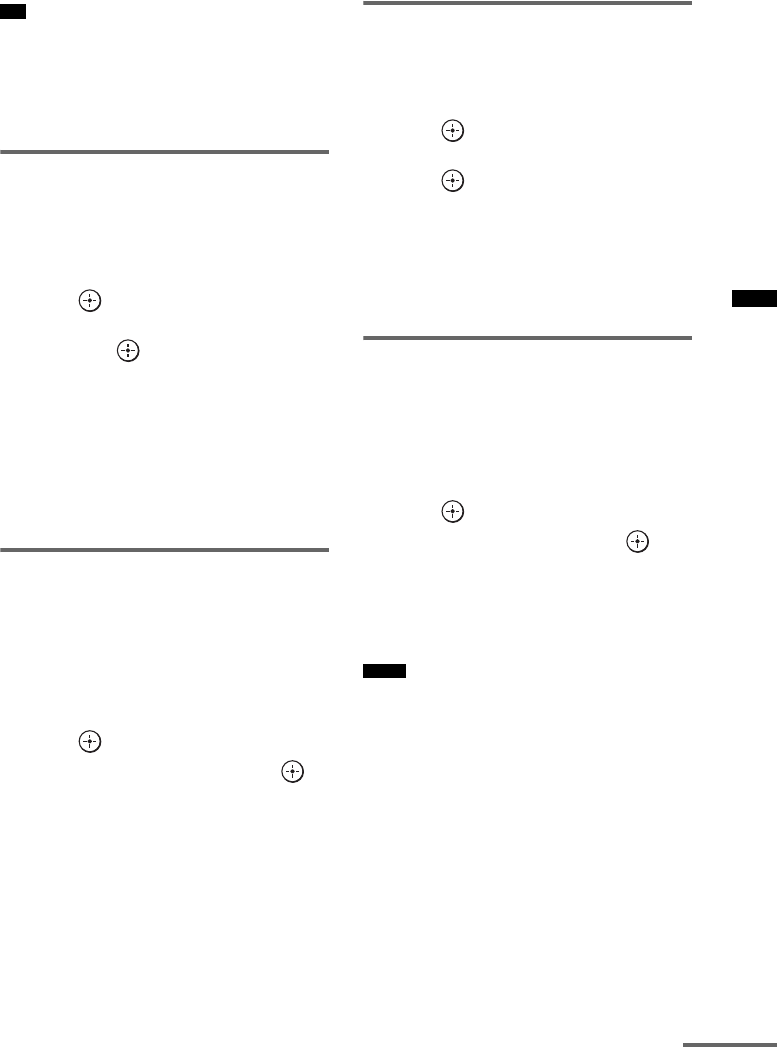
29
GB
Advanced Settings
• These settings are retained even if you disconnect the
AC power cord (mains lead).
The following pages show details for each
setting.
Setting the speaker level (CNT
LEVEL, SW LEVEL)
You can adjust the level and the balance of the
speaker and subwoofer.
1 Select “LEVEL” in the AMP menu, then
press or c.
2 Select “CNT LEVEL” or “SW LEVEL,”
then press or c.
• CNT LEVEL: Adjusts the speaker level.
• SW LEVEL: Adjusts the subwoofer
level.
3 Select the parameter you want.
The parameter of “CNT LEVEL” and “SW
LEVEL” is from “–6” to “+6” in 1-step
increments. The default setting is “0.”
Enjoying Dolby Digital sound
at low volume (AUDIO DRC)
Narrows the dynamic range of the sound track.
Useful for enjoying movies at low volume.
AUDIO DRC only applies to Dolby Digital
sources.
1 Select “LEVEL” in the AMP menu, then
press or c.
2 Select “AUDIO DRC,” then press or
c.
3 Select the setting.
• OFF: No compression of dynamic range.
• STD: Reproduces the sound track with
the kind of dynamic range that the
recording engineer intended.
• MAX: Compresses dynamic range fully.
Adjusting the bass and treble
level (BASS, TREBLE)
You can adjust the bass and treble level easily.
1 Select “TONE” in the AMP menu, then
press or c.
2 Select “BASS” or “TREBLE,” then
press or c.
• BASS : Adjusts the bass level.
• TREBLE : Adjusts the treble level.
3 Select the desired parameter.
The parameter is from “–6” to “+6” in 1-step
increments. The default setting is “0.”
Adjusting the delay between
the sound and the image (A/V
SYNC)
You can delay the sound using this function
when the image is slower than the sound.
1 Select “AUDIO” in the AMP menu, then
press or c.
2 Select “A/V SYNC,” then press or c.
3 Select the setting.
• OFF: No adjustment.
• ON: Adjusts the difference between
picture and sound.
• You may not be able to adjust the delay between
sound and image perfectly using this function.
• This function is useful only for Dolby Digital, DTS
and Linear PCM (2ch) input via digital coaxial cord,
digital optical cord or HDMI cable.
Tip
Notes
continued


















